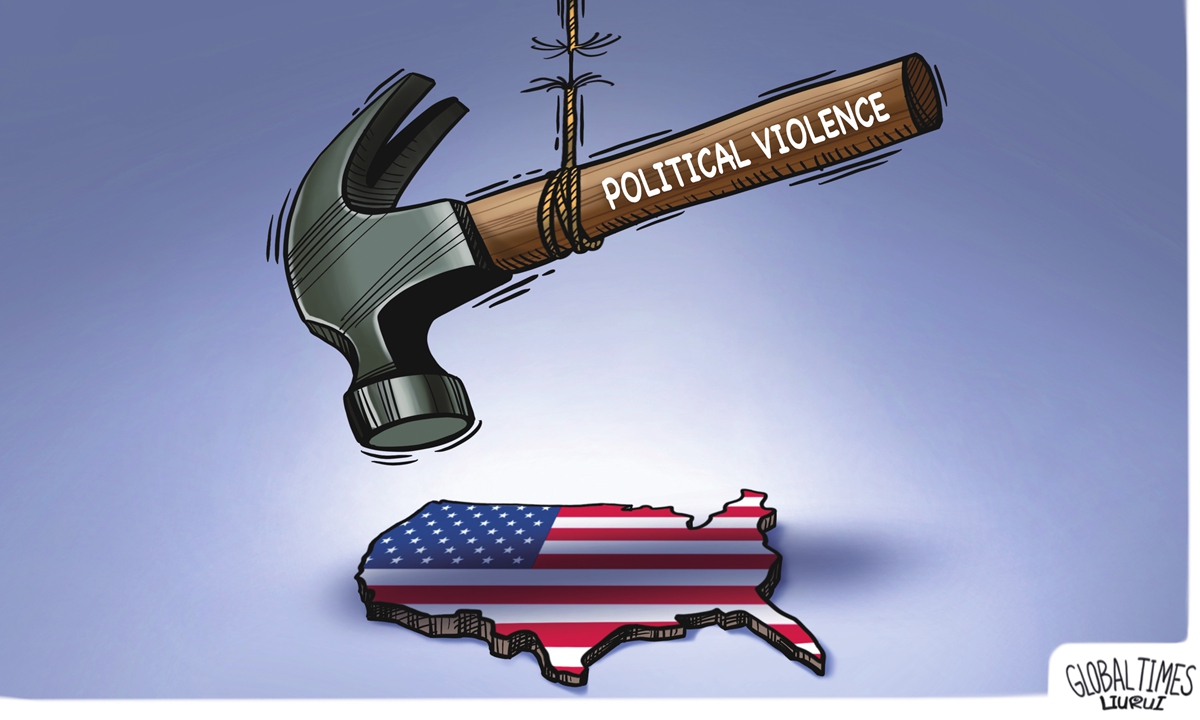
Illustration: Liu Rui/Global Times
The hatred in the US has reached an extreme level. This hatred didn't emerge overnight; it resulted from deep-seated resentment and intense polarization.
Political scientist Robert Pape from the University of Chicago has been studying Americans' attitudes toward political violence since the Capitol Hill attack on January 6, 2021. He conducted a nationwide survey on this topic last month. The survey found that 10 percent of respondents stated, "The use of force is justified to prevent Donald Trump from becoming president." One-third of those who gave this answer also claimed to own a gun. 7 percent of respondents said they "support the use of force to restore Trump to the presidency," with half of them stating they own firearms.
Why has it escalated to the point where guns are seen as a solution?
The answer lies in the escalating political divide and deteriorating public discourse. When political opponents are not just seen as competitors but as existential threats, the likelihood of violence significantly increases.
The US holds presidential elections every four years, allowing citizens to choose their leaders through democratic processes. If someone disagrees with a candidate, they can vote for someone else. This is the essence of American democracy - expressing political choices through ballots.
However, when political violence is on the rise, it suggests there is another option. This could mean a loss of trust in individual candidates and a loss of confidence in the entire political and electoral system. This violence indicates that many people no longer believe that democratic processes can address their concerns.
Is political polarization eroding trust in America's own institutions? The answer is yes.
The increasing polarization is dividing voters and undermining trust in democratic institutions. Each election cycle seems to deepen these divides, pushing some toward the edge of violence.
US democracy is currently experiencing a significant pathological symptom, characterized by extreme polarization and a decline in trust in the democratic process. The future of US democracy hinges on addressing these internal challenges, rather than focusing solely on external strategic competitors.



